Strictly Personal
Water Management: Morocco’s greatest threat or opportunity? By Jasper Hamann
Published
2 years agoon

Morocco has its work cut out for itself when it comes to water management. While the country is rich in innovative agricultural thinking and houses high-tech institutes and is one of the world’s largest fertilizer producers, many of the country’s farmers continue to depend primarily on rainfall to supply water for agricultural production.
Morocco’s future outlook could be dire if it does not heed warnings about the ever-escalating climate crisis. As the world continues to output massive amounts of carbon and methane, droughts and extreme weather are increasingly becoming a part of daily life.
An Evolving Crisis
The last few years have aptly shown the destructive nature of the climate crisis, as Morocco has faced its worst drought in nearly half a century. While droughts were already common in the North African country, occurring on average every three years, the current trend shows that things are only going to get worse.
The UN’s sustainable development division has pointed to Morocco’s water scarcity as the “main constraint on expansion” for its vital agricultural sector. While Morocco can have little impact on the evolution of the global climate crisis, local academics, businesses, and government are attempting to step up, and help the country prepare for what is to come.
Government Response
As one of Morocco’s top officials on this dossier, Minister of Equipment and Water Nizar Baraka in May pointed out that Morocco is set to lose 30% of its current water resources by 2050. Baraka has called for the need for the country to invest in water efficiency, and emphasized the need for “hydro-diplomacy,” to establish solid international agreements to prevent future water resources from dwindling water supplies.
Meanwhile, the government is mustering its financial resources to aim to protect Morocco’s water supply, while making satellite data available to better manage the country’s outdated irrigation networks.
In January, the cabinet allocated $260 million for its 2021-2022 water emergency plan, yet such amounts can only provide minor temporary solutions. The country’s Court of Auditors recognized this fact in a report in March, calling for massive structural funding to update irrigation, limit water waste, and protect domestic water resources.
Funding Solutions
But billions are needed to increase, not just protect, Morocco’s water supply. Minister Baraka recognizes this and has pointed to Morocco’s expansive coastline as a possible asset where futuristic desalination plants would help convert seawater into potable water resources.
Whether desalination will be a viable option for all of Morocco remains to be seen, as experts say this prospect depends on the cost to construct the plants, creating the (sustainable) energy needed to run them, and finding solutions for its waste product, brine.
As is common with Moroccan public projects, the country is not thinking small. Instead, it is constructing the world’s largest desalination plant in Casablanca, the success of which is likely to determine whether Morocco will repeat this strategy elsewhere.
Thought leaders
“Managing water is like managing your bank account,” Dr. Abdelghani Chehbouni, Professor at Mohammed VI Polytechnic University (UM6P), recently told MWN.
The professor is part of several key innovators and thought-leaders working to address Morocco’s growing water crisis. Solutions vary from simple low-tech changes, such as moving towards drip irrigation in Moroccan agriculture, to the ultra-high-tech ideas coming from the country’s foremost knowledge institutes.
UM6P, the country’s top research institute in this area, is building on the potential of AI machine learning, drones, and other innovative technology through its dedicated research institute, the International Water Research Institute (IWRI).
Similarly, the country’s largest company, fertilizer and phosphate giant OCP Group is counting on technology to provide solutions to the growing problem facing Morocco and the rest of the world.
Private Sector
For its own operations, OCP has introduced one of the most far-reaching water conservation initiatives of any large corporation worldwide, aiming to exclusively use non-conventional water sources within a decade while already recycling much of its own water needs. “We’ll use zero fresh water by 2028,” the company has vowed.
OCP’s ambitions go far beyond its own operations, however, as the fertilizer company is investing heavily in domestic and continental initiatives to combat water stress while contributing to major international fora on the topic.
At the 2022 International Water Association’s Forum for Industrial Water Users this past Friday, OCP presented their most recent effort, an e-book to promote sustainable water use for industry.
In many ways, OCP Group’s operations present a microcosm of African water issues. Phosphate mining, transportation, and fertilizer production are water-intensive processes that mirror the growing need for water resources in Africa’s growing industrial sector and agriculture.
OCP’s approach however presents a sense of hope, as it is already applying some of the methods that governments across Africa are likely to depend on in the future.
Future African and Moroccan solutions can already be found in OCP’s current strategy of far-reaching water conservation, intensive use of desalination, and water treatment while generating much of the energy for these processes in a sustainable manner.
As Morocco, Africa, and the rest of the world scramble for solutions to growing water scarcity, Morocco’s efforts are increasingly tailored toward turning a threat into an opportunity and presenting an optimistic technology-driven vision for a sustainable future in an evolving global climate context.
You may like
-
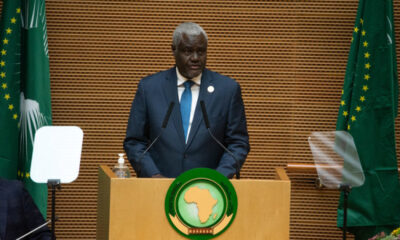

If I were put in charge of a $15m African kitty, I’d first deworm children, By Charles Onyango-Obbo
-
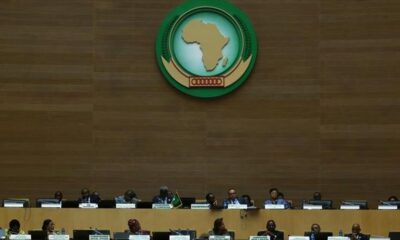

AU shouldn’t look on as outsiders treat Africa like a widow’s house, By Joachim Buwembo
-
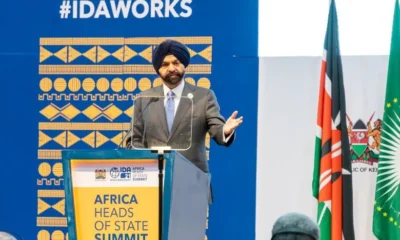

In 64 years, how has IDA reduced poverty in Africa? By Tee Ngugi
-


This Sudan war is too senseless; time we ended it, By Tee Ngugi
-


Air Peace, capitalism and national interest, By Dakuku Peterside
-


This is chaos, not governance, and we must stop it, By Tee Ngugi
Strictly Personal
If I were put in charge of a $15m African kitty, I’d first deworm children, By Charles Onyango-Obbo
Published
4 days agoon
May 13, 2024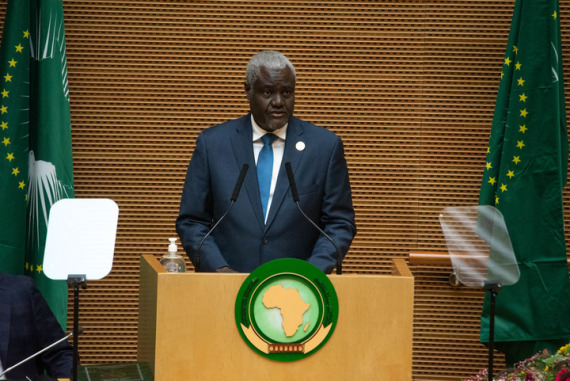
One of my favourite stories on pan-African action (or in this case inaction), one I will never tire of repeating, comes from 2002, when the discredited Organisation of African Unity, was rebranded into an ambitious, new African Union (AU).
There were many big hitters in African statehouses then. Talking of those who have had the grace to step down or leave honourably after electoral or political defeat, or have departed, in Nigeria we had Olusegun Obasanjo, a force of nature. Cerebral and studious Thabo Mbeki was chief in South Africa. In Ethiopia, the brass-knuckled and searingly intellectual Meles Zenawi ruled the roost.
In Tanzania, there was the personable and thoughtful Ben Mkapa. In Botswana, there was Festus Mogae, a leader who had a way of bringing out the best in people. In Senegal, we had Abdoulaye Wade, fresh in office, and years before he went rogue.
And those are just a few.
This club of men (there were no women at the high table) brought forth the AU. At that time, there was a lot of frustration about the portrayal of Africa in international media, we decided we must “tell our own story” to the world. The AU, therefore, decided to boost the struggling Pan-African New Agency (Pana) network.
The members were asked to write cheques or pledges for it. There were millions of dollars offered by the South Africans and Nigerians of our continent. Then, as at every party, a disruptive guest made a play. Rwanda, then still roiled by the genocide against the Tutsi of 1994, offered the least money; a few tens of thousand dollars.
There were embarrassed looks all around. Some probably thought it should just have kept is mouth shut, and not made a fool of itself with its ka-money. Kigali sat unflustered. Maybe it knew something the rest didn’t.
The meeting ended, and everyone went their merry way. Pana sat and waited for the cheques to come. The big talkers didn’t walk the talk. Hardly any came, and in the sums that were pledged. Except one. The cheque from Rwanda came in the exact amount it was promised. The smallest pledge became Pana’s biggest payday.
The joke is that it was used to pay terminal benefits for Pana staff. They would have gone home empty-pocketed.
We revive this peculiarly African moment (many a deep-pocketed African will happily contribute $300 to your wedding but not 50 cents to build a school or set up a scholarship fund), to campaign for the creation of small and beautiful African things.
It was brought on by the announcement by South Korea that it had joined the African Summit bandwagon, and is shortly hosting a South Korea-Africa Summit — like the US, China, the UK, the European Union, Japan, India, Russia, Italy, Saudi Arabia, and Turkey do.
Apart from the AU, whose summits are in danger of turning into dubious talk shops, outside of limited regional bloc events, there is no Pan-African platform that brings the continent’s leaders together.
The AU summits are not a solutions enterprise, partly because over 60 percent of its budget is funded by non-African development partners. You can’t seriously say you are going to set up a $500 million African climate crisis fund in the hope that some Europeans will put up the money.
It’s possible to reprise the Rwanda-Pana pledge episode; a convention of African leaders and important institutions on the continent for a “Small Initiatives, Big Impact Compact”. It would be a barebones summit. In the first one, leaders would come to kickstart it by investing seed money.
The rule would be that no country would be allowed to put up more than $100,000 — far, far less than it costs some presidents and their delegations to attend one day of an AU summit.
There would also be no pledges. Everyone would come with a certified cheque that cannot bounce, or hard cash in a bag. After all, some of our leaders are no strangers to travelling around with sacks from which they hand out cash like they were sweets.
If 54 states (we will exempt the Sahrawi Arab Democratic Republic for special circumstances) contribute $75,000 each, that is a good $4.05 million.
If just 200 of the bigger pan-African institutions such as the African Development Bank, Afrexim Bank, the giant companies such as MTN, Safaricom, East African Breweries, Nedbank, De Beers, Dangote, Orascom in Egypt, Attijariwafa Bank in Morocco, to name a few, each ponied up $75,000 each, that’s a cool $15 million just for the first year alone.
There will be a lot of imagination necessary to create magic out of it all, no doubt, but if I were asked to manage the project, I would immediately offer one small, beautiful thing to do.
After putting aside money for reasonable expenses to be paid at the end (a man has to eat) — which would be posted on a public website like all other expenditures — I would set out on a programme to get the most needy African children a dose of deworming tablets. Would do it all over for a couple of years.
Impact? Big. I read that people who received two to three additional years of childhood deworming experience an increase of 14 percent in consumption expenditure, 13 percent in hourly earnings, and nine percent in non-agricultural work hours.
At the next convention, I would report back, and possibly dazzle with the names, and photographs, of all the children who got the treatment. Other than the shopping opportunity, the US-Africa Summit would have nothing on that.
Charles Onyango-Obbo is a journalist, writer, and curator of the “Wall of Great Africans”. X@cobbo3
Strictly Personal
AU shouldn’t look on as outsiders treat Africa like a widow’s house, By Joachim Buwembo
Published
1 week agoon
May 9, 2024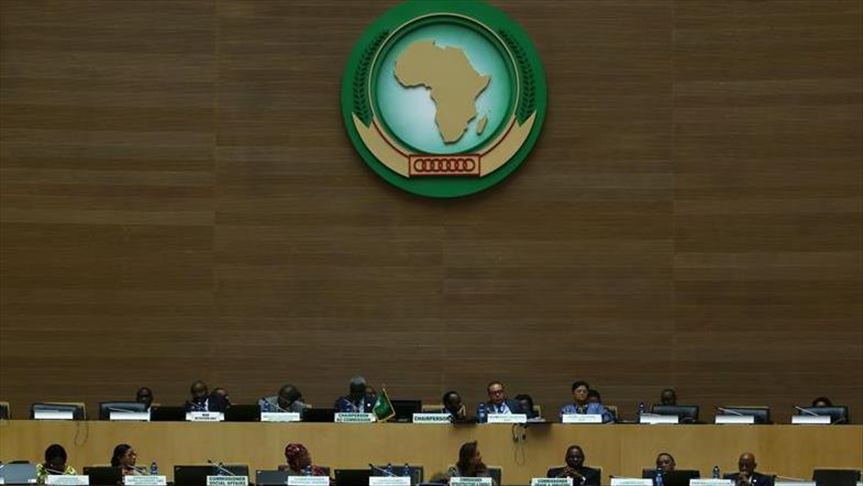
There is no shortage of news from the UK, a major former colonial master in Africa, over whose former empire the sun reputedly never set. We hope and pray that besides watching the Premier League, the managers of our economies are also monitoring the re-nationalisation of British Railways (BR).
Three decades after BR was privatised in the early to mid-nineties — around the season when Africa was hit by the privatisation fashion — there is emerging consensus by both conservative and liberal parties that it is time the major public transport system reverts to state management.
Yes, there are major services that should be rendered by the state, and the public must not be abandoned to the vagaries of purely profit-motivated capitalism. It is not enough to only argue that government is not good at doing business, because some business is government business.
Since we copied many of our systems from the British — including wigs for judges — we may as well copy the humility to accept if certain fashions don’t work.
Another piece of news from the UK, besides football, was of this conservative MP Tim Loughton, who caused a stir by getting summarily deported from Djibouti and claiming the small African country was just doing China’s bidding because he recently rubbed Beijing the wrong way.
China has dismissed the accusation as baseless, and Africa still respects China for not meddling in its politics, even as it negotiates economic partnerships. China generously co-funded the construction of Djibouti’s super modern multipurpose port.
What can African leaders learn from the Loughton Djibouti kerfuffle? The race to think for and manage Africa by outsiders is still on and attracting new players.
While China has described the Loughton accusation as lies, it shows that the accusing (and presumably informed) Britons suspect other powerful countries to be on a quest to influence African thinking and actions.
And while the new bidders for Africa’s resources are on the increase including Russia, the US, Middle Eastern newly rich states, and India, even declining powers like France, which is losing ground in West Africa, could be looking for weaker states to gain a new foothold.
My Ugandan people describe such a situation as treating a community like “like a widow’s house,” because the poor, defenceless woman is susceptible to having her door kicked open by any local bully. Yes, these small and weak countries are not insignificant and offer fertile ground for the indirect re-colonisation of the continent.
Djibouti, for example, may be small —at only 23,000square kilometres, with a population of one million doing hardly any farming, thus relying on imports for most of its food — but it is so strategically located that the African Union should look at it as precious territory that must be protected from external political influences.
It commands the southern entrance into the Red Sea, thus linking Africa to the Middle East. So if several foreign powers have military bases in Djibouti, why shouldn’t the AU, with its growing “peace kitty,” now be worth some hundreds of millions of dollars?
At a bilateral level, Ethiopia and Djibouti are doing impressively well in developing infrastructure such as the railway link, a whole 750 kilometres of it electrified. The AU should be looking at more such projects linking up the whole continent to increase internal trade with the continental market, the fastest growing in the world.
And, while at it, the AU should be resolutely pushing out fossil-fuel-based transportation the way Ethiopia is doing, without even making much noise about it. Ethiopia can be quite resolute in conceiving and implementing projects, and surely the AU, being headquartered in Addis Ababa, should be taking a leaf rather than looking on as external interests treat the continent like a Ugandan widow’s house.
Buwembo is a Kampala-based journalist. E-mail:buwembo@gmail.com
EDITOR’S PICK


Hope for persons with disability, as Muleya shares promising story of inclusivity in governance
Frederick John Muleya, a differently abled person based in Choma town, Southern Province, has shared some insights of changes being...


South Africa: President Ramaphosa signs major health bill two weeks before election
South Africa’s President Cyril Ramaphosa signed a measure into law on Wednesday that promises to offer universal health coverage, hailing...


Burna Boy, Asake, Davido, Tems, other Nigerian stars bag BET nominations
Thursday was a good day for Nigerian music stars, and especially the entertainment industry, as singers Burna Boy, Ayra Starr,...


Ethiopian marathon legend Bekele returns to Olympics after 12-year absence
After a 12-year absence on the international race circuit, Ethiopian marathon legend, Kenenisa Bekele, has announced that he will return...
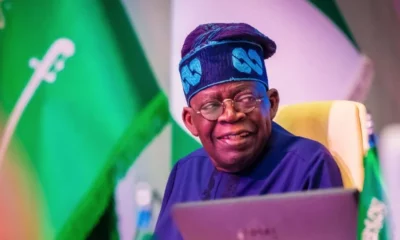

Nigerian govt to open student loan application portal May 24
The Nigerian government has announced that the portal for the long awaited student loan scheme will open on May 24,...


Google relaunches Hustle Academy with AI focus to empower African SMBs
Google has relaunched the 2024 cohort of its Hustle Academy, a programme dedicated to accelerating the growth of small and...
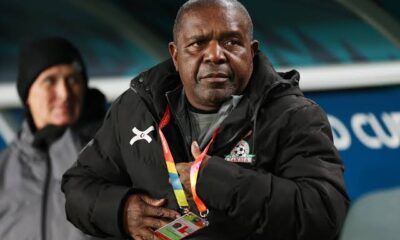

Zambia’s women national team coach face new sexual assault allegation
Zambia women national team coach, Bruce Mwape, is facing new allegations of sexual assault and misconduct at the 2023 Women’s...
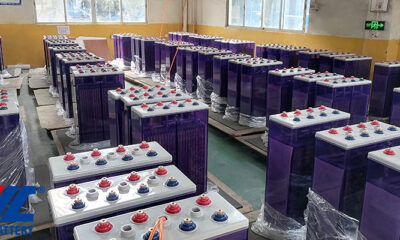

China’s Hailiang, Shinzoom to establish vehicle battery installations in Morocco
Hailiang and Shinzoom, Chinese car battery makers, will establish two separate operations in Morocco as the country strives to adapt...


Nigeria targets 10,000MW hydropower through sustainable power project
Nigeria’s Minister of Power, Adebayo Adelabu, says the federal government is targeting10,000 megawatts through its Sustainable Power and Irrigation Project...
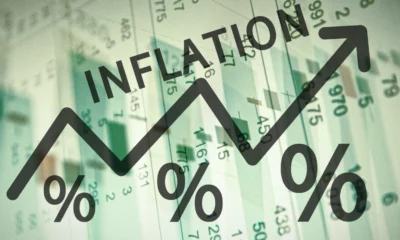

Nigeria’s inflation hits 28-year high of 33.69% in April
Nigeria’s consumer inflation reached a 28-year high of 33.69% in April, up from 33.20% in March, according to statistics agency...
Trending
-

 Tech2 days ago
Tech2 days agoLatin America’s biggest payment processor PayRetailers expands into Africa
-

 VenturesNow1 day ago
VenturesNow1 day agoNigeria’s inflation hits 28-year high of 33.69% in April
-

 Sports2 days ago
Sports2 days agoBotswanan Tebogo hits at Kenyan Omanyala over claims of being African sprint king
-

 Metro1 day ago
Metro1 day agoNigeria targets 10,000MW hydropower through sustainable power project


